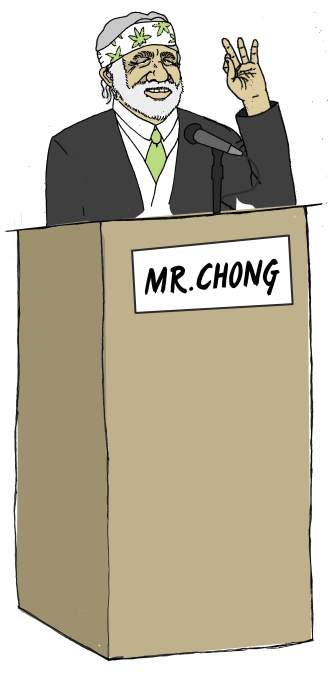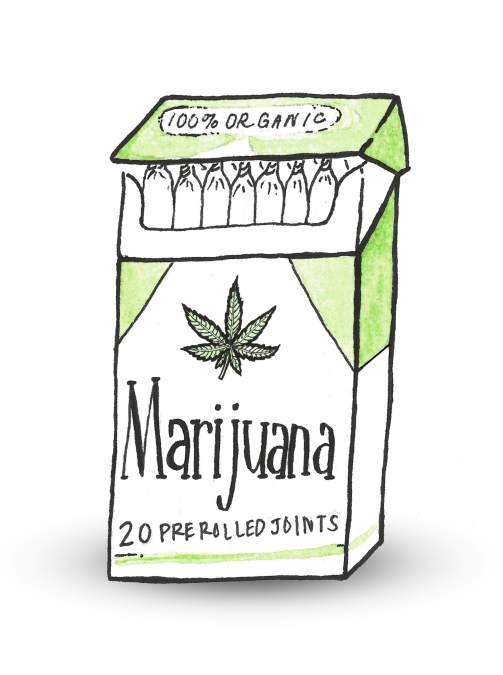When I talk to my friends about the marijuana movement, most think it’s a fun idea that’s basically run its course. I mean, everyone agrees pot will eventually be legal, right? So what’s left to talk about? While folks in four states can now get high as a kite without consequences, more than 600,000 citizens are arrested each year for marijuana-related offenses, and almost 100,000 men and women currently serve sentences for drug offenses. Looking at the details of some of these cases makes your head spin—not in a hilarious hazy-fog kinda way, more in a Linda Blair-in-Exorcist kinda way. In an effort to show how lucky we are, how ridiculous federal policy is, and how much work still remains, allow me to share a few details of those affected by the War on Drugs.
Antonio Bascaró, now 80, has been imprisoned for 35 years after smuggling pot in a fishing boat from Columbia to Florida. No violence, no hard drugs, no prior offenses—just a bail of weed and some bad luck. Bascaró’s sentence does not qualify for the U.S. Sentencing Commission reform guidelines (which have shortened drug sentences for 40,000 federal prisoners), because—get this—the sentence itself is too old to be shortened. Convicted in 1980, he holds the record as the U.S.’s longest-serving marijuana prisoner—a record I’m sure he’d happily relinquish if he could enjoy as a free man a few of his remaining days. The good news? His original sentence has been chopped by 20 years due to good behavior. His new release date? June 2019.
Canadians like locking up old hippies too. 76-year-old grandpa Donald Clarkson was just sent to a slammer north of the border for growing 150 plants in his rental house. The ex-trucker told the judge he’d started the grow operation only to supplement his meager pension. Guess Gramps should have tried a different entrepreneurial effort, cuz he’ll be serving the minimum sentence, six months, under Canada’s (recently toughened) federal drug laws after pleading guilty to production of marijuana for the purposes of trafficking.
Shona Banda, 37, lost custody of her 11-year-old son on March 24 after the boy questioned some of the Reefer Madness being delivered in a drug- and alcohol-education program at his school—and mentioned the medical marijuana in his own home. School officials in Kansas then contacted the police, who went to the house on a “welfare check” and found cannabis and drug paraphernalia in the kitchen. Officers subsequently took the boy into protective custody. Banda uses cannabis oil to treat her Crohn’s disease. A fundraising website for Banda’s legal defense states that her son “disagreed with some of the anti-pot points that were being made by school officials.” After a hearing last Monday, Kansas authorities refused to give Banda her son back and placed him into protective custody. Banda, the author of Live Free or Die: Reclaim Your Life . . . Reclaim Your Country (about her medical use of cannabis oil), is generating a ton of support and publicity, and clearly will not go down without a fight. The case has been forwarded to the district attorney’s office, where possible charges include possession of marijuana with the intent to distribute and child endangerment.
In 2012, a Maryland District judge planned on letting Ronald Hammond off with a fine for his possession charge, saying there wasn’t enough weed in the case to “roll you a decent joint.” Hammond agreed to pay a $100 fine. Problem was that Hammond had then officially violated parole for a 2009 drug charge—so instead of the $100 ticket, the charge triggered a 20-year prison sentence. Like so many caught in the system, Hammond got just two strikes and he was out (for decades).
The folks at Seattle Hempfest have been advocating for those imprisoned for pot for more than two decades now; they’ve also “adopted” several men serving life sentences without the possibility of parole for cannabis-related charges. One adopted prisoner is writer George Martorano, who has been in prison 32 years. He’s serving a life sentence—the longest prison term ever imposed on a nonviolent first-time offender in American history. (USA! USA!) Martorano has written more than 30 books (including self-help books for inmates); with all that confinement, he’s certainly got the time.
“Truly my greatest fear of prison,” he wrote on his website, freegeorge.us., “is to die and no one knowing of I, prisoner 12973, thus I must write.”
I’m sure there were people in 1964 who, after passage of the landmark Civil Rights Act, felt the movement had done its job and was over. After all, the Act outlawed discrimination based on race, color, religion, sex, or national origin. Unfortunately, the cause for that movement—as well as the legalization movement—still exists. The struggle is not even close to being over. So we push on . . . and continue the dialogue. To get involved, go to hempfest.org, drugpolicy.org or clemencyreport.org.





